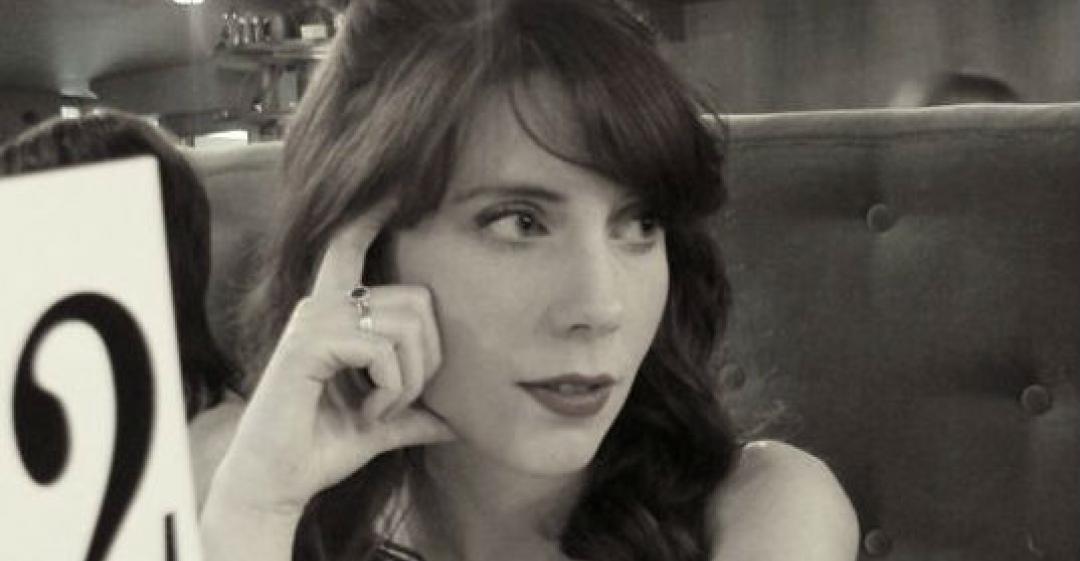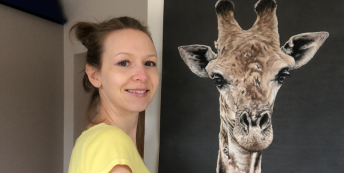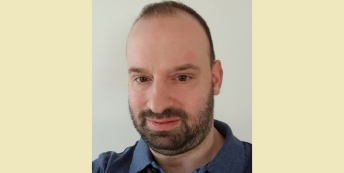“It was a terrifying moment. I knew I'd finally made the decision, and I had no idea where to go from there.”

What work were you doing previously?
I trained and worked as a professional opera singer. I started singing at twelve, and it quickly became clear that I had a natural operatic voice. After school, I won a scholarship to the Royal College of Music, going on from there to work for major opera houses, including the Royal Opera House and Glyndebourne Festival Opera.
What are you doing now?
Now, I work for an NGO on human rights and environmental campaigns. I spend my days trying to make major companies and investors behave more responsibly on issues like land-grabbing in Africa and paying employees a living wage. I love earning my living by contributing something positive to the world, knowing that when I go home every day we're a tiny bit closer to improving people's lives or protecting the planet.
Why did you change?
I love to sing, but I had known deep down for years that it wasn't going to fulfil me as a career. My passion to do something about the real issues our planet and communities are facing only grew really strong once I'd started down the path to becoming an opera singer, and suddenly I was in my mid-twenties, knowing what I really wanted to do, but stuck doing something totally different.
But it wasn't just that. I didn't want to spend my life living out of a suitcase, moving from country to country every few months, and having to take sleeping pills to kick me in and out of different time zones. I didn't want to work the antisocial hours. I also hated having to worry so much about my health; if someone sneezed next to me on the tube, that could mean I got ill and literally couldn't work or earn for a week.
We spend so much of our lives 'at work' and I wanted to do something with that time that mattered, and that genuinely interested me.
When was the moment you decided to make the change?
Christmas 2011. I'd spent much of the past year singing at Glyndebourne Festival Opera in Sussex, and while I was there I'd met some older singers who are real superstars of the opera world. Getting to know them had given me an uncomfortable realisation; their lives were what I was ultimately aiming for, and yet I really didn't like what I saw of them.
There was so much worry about their health, so much pressure every show from critics, and so much concern that some bright young thing would come and eclipse them and it'd all be over. One singer had recently bought a home with her husband in America but had only spent 3 weeks in it during the past year.
I asked myself if I could really spend the next 30 years doing this, even though I didn't really want it, and there was only one answer. It was a terrifying moment because I knew I'd finally made the decision and I had no idea where to go from there.
Are you happy with the change?
The past year and a half have been scary and challenging, but there has never been a single moment when I've looked back and thought I made the wrong choice. I don't love every moment of my new job of course - that wouldn't be reality - but I know fundamentally that I'm doing the right thing for me.
People often think the choice I made is odd. Why would someone opt to go from the glamour of the opera life to staring at a screen all day? It's simple, really: now I get to spend my working days doing what interests and invigorates me, instead of feeling stuck somewhere I didn't want to be.
What do you miss and what don't you miss?
There are some things that I do miss about my life in opera. I love the physical act of singing and the buzz of being on stage, so of course I miss that. I miss doing a job which isn't office-bound; sitting down most of the day and looking at a screen isn't anyone's idea of a good time.
But I never miss the health worries; when I get a tickle in my throat now, it doesn't matter. I love being able to spend more time with my partner. And I certainly don't miss being in those practice rooms worrying about a few bars of music or how Italiante my consonants were.
How did you go about making the shift?
After making the decision that Christmas, I was in a total head-spin for a few weeks. Terrified would not be an overstatement. I talked through my interests and options with friends and family, trying to figure out where to go from there. I started applying for internships with campaigning organisations and was absolutely gob-smacked when one invited me in for an interview. Amazingly, I got the internship and from then I threw myself totally into my new career.
Part of what had held me back from quitting sooner was the fear that I had no other skills than singing and performing; it was all I'd trained to do. But that first internship made me realise that I was wrong; we always have transferable skills, we just don't know it until we have to transfer them! After that internship I did another one, and after three months, the organisation hired me. Since then, I've been promoted twice and am now running my own projects and managing the interns who come to us just like I did a year ago.
What was the most difficult thing about changing?
For me, the most difficult thing about changing was my own fear. Looking back, I can see now that I would have changed a lot earlier if I'd had the courage. I used to feel like I was in a cage and there just wasn't a way out. My friends and family all knew me as a singer, and my mother had paid for years of singing lessons when I was a child and my fees at the Royal College of Music, so I thought I had no right to bow out. Being a singer was also the key way that I had described myself to people and in fact, to myself, for the best part of a decade. I thought they would judge me if I quit, and I didn't know how to define myself without that label.
What help did you get? 
My partner was an amazing support, helping me to draft internship applications and frame my singing experience in ways that were relevant for office-based work. The encouragement that my friends gave me was incredible and really helped to keep me going in those initial frightening months.
What have you learnt in the process?
I feel like I've learnt so much from this career change that I hadn't expected, like the benefits of reaching out to people and seeing who might be able to help. Someone you know will always have a useful contact and it's totally worth putting yourself out there and seeing what happens. Throwing yourself whole-heartedly into the change is also essential; if I hadn't gone the extra-mile at my internships, I wouldn't be in the great job I am now.
I've also learnt some bigger life lessons. Most importantly, that how other people see you doesn't matter. People will always have their own opinion about why you've left a career and whether or not it was a wise decision, but letting that determine your path in life would be absolute madness. I feel like I'm fully myself now that my work aligns with what I find interesting and what I'm passionate about, and that's all the justification I need.
What do you wish you'd done differently?
In a way, I'm glad I did it in 2011 and not earlier because I had some great experiences singing. But if I'd had the courage, I think I would like to have done it sooner. I also wish I'd worried less! I spent a lot of the first year after changing being anxious that I'd never get properly hired and that my CV looked too odd for prospective employers. It turned out not to be true at all. Apparently, weird goes down well!
What would you advise others to do in the same situation?
Try to subtract the views of others when you're making your decision. Take your gut instinct and the facts, and go from there. If you can talk to other people in the field you want to go into, definitely do so; it ensures that you're imagining a reality, not a hypothetical idyll.
Most importantly, if you're going to leap, leap entirely. Immerse yourself in the new career, say yes to every new challenge, and work hard to keep every door open to you. Make up for lost time by simply being excellent at your new role; people don't mind a learner when the learner is enthusiastic and dedicated.
What resources would you recommend to others?
I found reading or hearing about other people's career changes really inspiring and helpful. A while before I changed, the Guardian ran a feature on people who've had multiple careers; I tore the pages out and still have them today. It's so helpful to know that people do it all the time and make a success of it. Knowing that helped me believe that I could do the same.
What lessons could you take from Emily's story to use in your own career change? Let us know in the comments below.



